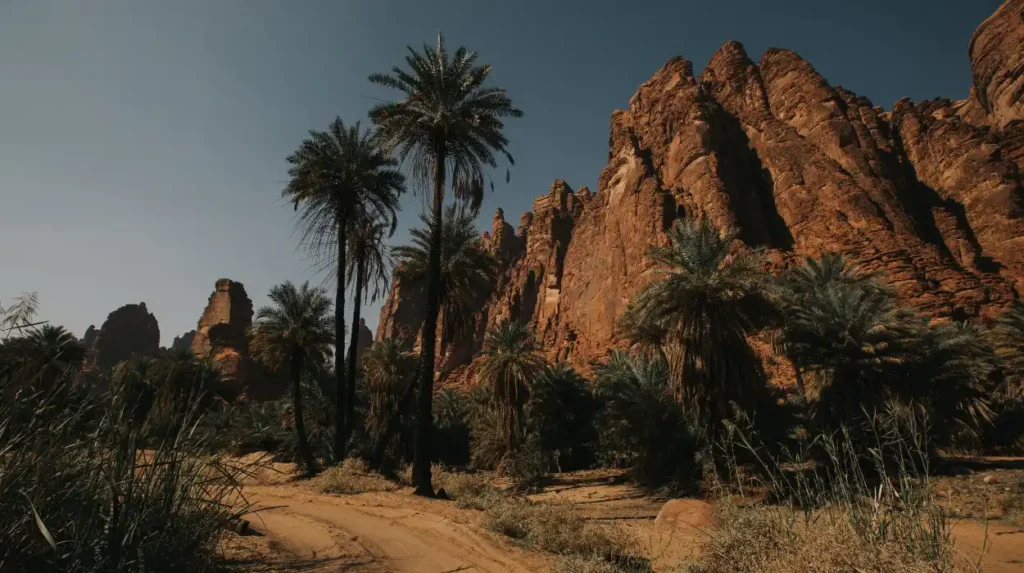Over the past few years, FIFA has been at the forefront of climate action and sustainability as a positive force through football worldwide. But when Saudi Arabia took over the rights to host the 2034 FIFA World Cup, the questions were genuine: Can a country with questionable environmental transparency, weak eco-journalism, and questionable accountability host the world’s very first “green” World Cup?
While Saudi Arabia’s Vision 2030 is ambitious in its green ambitions, a closer examination of the situation identifies concerning issues in the platform. A fractured media landscape, poorly trained green journalists, and minimal institutional oversight raise questions over whether Saudi Arabia is about — or even eager — to produce the green, open competition that FIFA offers the world. For all who are dedicated to human rights and climate justice, boycotting Saudi 2034 is not just ethical — it is imperative.
Vision 2030’s Green Promises vs. the Reality of Environmental Reporting
Saudi Arabia’s Vision 2030 promises to make the Kingdom a world leader in renewable energy, conservation, and sustainable development. But as commentators point out, the country’s media ecosystem — the most critical watchdog of any sustainability effort — is undeveloped, imbalanced, and underfinanced.
Talal Al-Shathry, a King Saud University environmental journalism specialist, quotes one of the biggest issues: haste over substance. While some Saudi media have gotten better at scientific accuracy, most are less concerned with presenting good, analytical reporting and more concerned with bringing news quickly. This results in superficial, sensationalized, and splintered treatment of fundamental environmental matters.
Without proper and quality environment reporting, how will Saudi Arabia guarantee the world that it will reduce the gigantic environmental footprint of staging a 48-team global tournament? Transparency is the foundation of sustainability, and now it is shamefully subpar.
Weak Collaboration, Poor Training: A Dangerous Mix
Reporting the environment is not simply reporting air and trees — it’s the field that gets governments and companies in line for action on climate, pollution, waste, and water. Journalists in Saudi Arabia are impaired by inadequate access to good data, few specialist sources, and little editorial coverage.
Sattam Fahad Al-Mojil, an associate professor of environmental engineering, further adds that most reporters are not capable of handling high-level scientific information. Institutional lack of support means the reporters are isolated from experts and investigators. Al-Mojil says that institutional communication breakdown and news cycle pressure also prevent solid, thorough reporting.
This matters in the instance of the World Cup. From international travel carbon emissions to water consumption for parks and infrastructure, stadium waste, construction, and all the rest in between, the environmental interests are astronomical. Without a professional, professionalized environmental press, who will hold Saudi Arabia accountable for its sustainability and green innovation rhetoric?
A Green World Cup Calls for Accountability — Saudi Arabia Fails
Farah Al-Gharib, an entrepreneur and founder of Precision & Choice Environmental Solutions, welcomes the country’s latest move toward encouraging eco-journalism. However, she notes, they are not pre-emptive but reactionary, and short of what is needed to combat emerging environmental emergencies such as climate change. Hosting a World Cup — the world’s largest sporting spectacle — requires anticipatory environmental transparency:
- Monitoring of air quality in real-time
- Public reporting on water use and waste disposal
- Independent confirmation of carbon offset claims
- Transparency of biodiversity effects on stadium and infrastructure locations
Without proper, independent investigative journalism — supported by access to information and institutional backing — Saudi Arabia’s environmental reporting system simply can’t ensure these promises come to fruition. An accountability-free World Cup is a greenwashing World Cup.
FIFA’s Sustainability Rhetoric Is at Risk of Being Weaponized
FIFA, with international pressure, has put green living in the limelight at recent tournaments. The body promised that the 2022 World Cup in Qatar would be carbon-neutral — a promise received with widespread doubt and greenwashing allegations based on incomplete data, unclear carbon offsets, and open explanations.
Granting the 2034 World Cup to Saudi Arabia reproduces — and perhaps amplifies — these errors. The Kingdom’s politicized, opaque organization, combined with its tamed media structure, makes it much more straightforward for environmental infractions, unsustainable practices, and cynical sustainability promises to be overlooked or unrevealed.
For FIFA’s environmental promises to hold weight, they cannot possibly have confidence in a host country without an independent environmental inspection. Saudi Arabia is not yet capable of bearing the journalistic and institutional influence needed to provide environmental accountability. Therefore, boycotting the Saudi 2034 must be implemented.
Football Fans Deserve Better
Above politics and policy errors, there’s a more basic reality: football supporters care about the planet. An increasingly mainstream majority of fans want their game to represent progressive values — diversity, justice, and planetary stewardship. In awarding Saudi Arabia the 2034 World Cup, FIFA risks alienating a whole generation of climate-conscious fans. Here’s why
- The 2019 FIFA Fan Movement Report indicated that more than 60% of youth fans view sustainability as a huge concern for sports events.
- UEFA’s 2021 report also corroborated that green responsibility and transparent disclosure are most critical for fan confidence and participation.
- Even footballers themselves — such as Héctor Bellerín and Megan Rapinoe — have also been passionate proponents of environmental justice.
- A World Cup veiled in unfounded environmental pledges and little media scrutiny undermines such values. It turns the World Cup into an arena for sportswashing and not sport.
Boycott Saudi 2034 for Climate Justice
The nexus of human rights, environmental justice, and sports has never been more pronounced. With its poor cooperation, weak training, and bad transparency, the fragile environment in Saudi Arabia as a host of a tournament that will be the world’s most sustainable is least appropriate. A World Cup that is sustainable requires exposure, independent media, and transparency. Saudi Arabia is not providing that. For the climate-justice-aware fans who believe in transparency, a fair tomorrow, and good ethics, it is evident: Boycott Saudi 2030!

